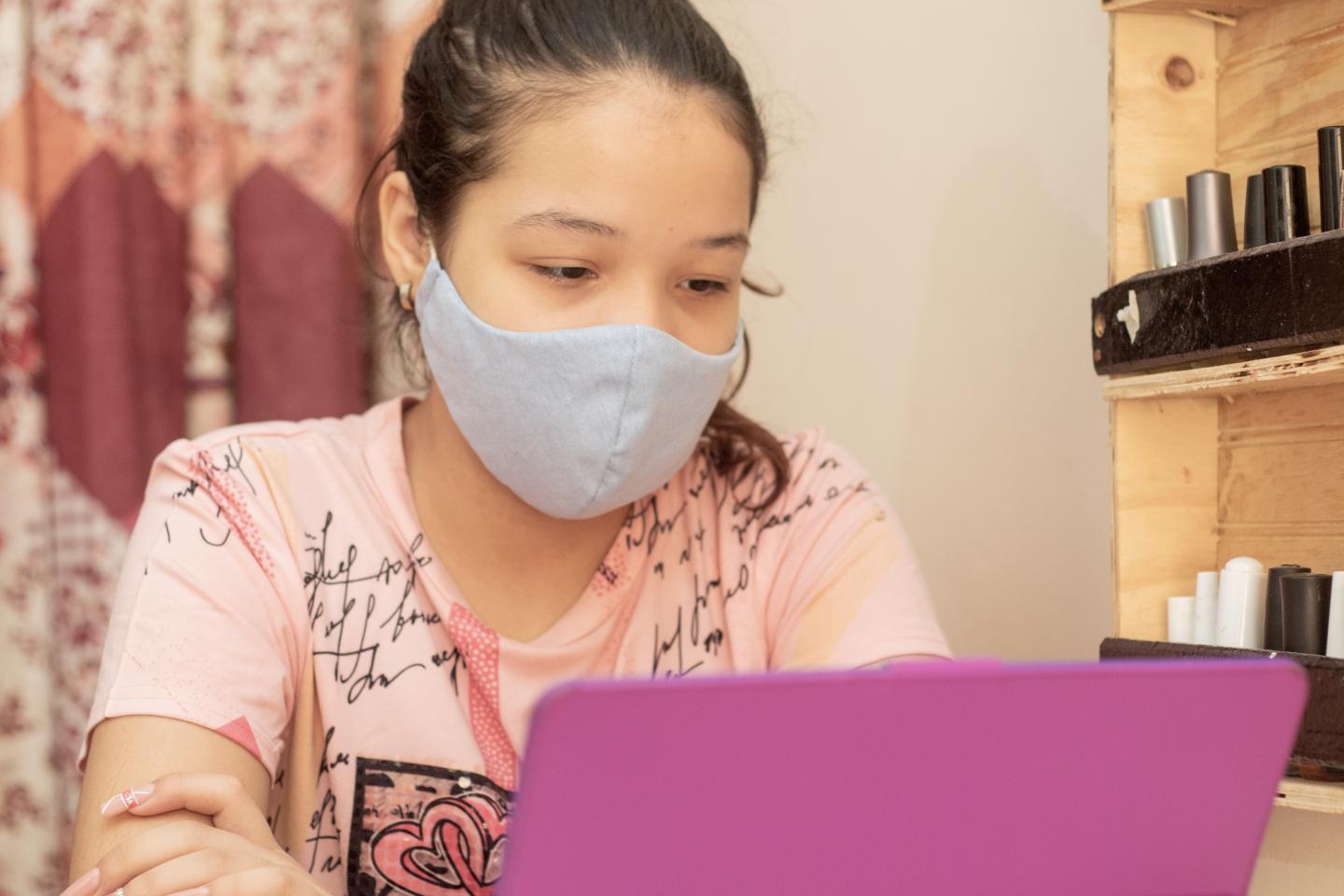Learning English as a second language

UNICEF ECAVer original
Minutes before the clock strikes the time for her lesson to begin, Charlotte is sitting eagerly in front of her mobile device, books and pens at the ready. She can’t wait to get started on her online English as a second language (ESL) class with her favourite facilitator, Cruzdelis, and a dozen or so other children.
Charlotte is one of thousands of young people who have made the journey from Venezuela to start a new life in Trinidad and Tobago. In order to make the most of this new life, they need to learn English.
The 12-year-old has only been doing the classes for a month but she’s already seeing the benefits. “It’s really helping me with my English and I love what I’m learning,” she says enthusiastically, adding, “I like my teachers too and how they interact with us. The classes are lively and very engaging!”
Nearly a thousand children online
The programme promotes a content and language integrated learning approach where different subjects are taught through ESL. It is the result of a collaboration between Living Water Community, the Pan American Development Foundation, the University of the West Indies and UNICEF, funded by the European Union(EU). To date, nearly a thousand children are already benefitting.
According to Dr. Aloys Kamuragiye, UNICEF’s Eastern Caribbean Area Representative, the intervention is vital.
Quality education is a fundamental right, and the development of English language competency is key to the integration of children on the move in Trinidad and Tobago. Without English, they simply cannot achieve this and thrive.
A bright spot
Charlotte’s mother, Eunice agrees. Life has been tough for the family. Because of COVID-19 lockdown measures, she is currently not working and is finding it hard to make ends meet. Her husband is their only source of income. They are not always welcomed and are often accosted in the street by those questioning their right to be in Trinidad. However, the ESL classes are a bright spot in their lives.
It’s made such a difference to Charlotte and she has friends now from the classes on WhatsApp. I was getting really worried about her mental health with her being alone for such a long time. She’s happier, interacting a lot and her English is improving. She feels better, and I feel better!
As for Charlotte herself, who loves cooking and Carnival, learning the classes could help children on the move achieve their wish to attend mainstream school and integrate. "It is the best thing we can do to live the lives we want here in Trinidad and Tobago," she says.

